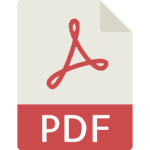Legal Document Shop
Showing 3391–3405 of 5171 resultsSorted by price: high to low
Filter by: FEDERAL DISTRICT
Filter by Price
Filter by: FILE TYPE
Incident Report, Motion to Compel
Motion to Compel Incident Report
Biomechanic opinions re injuries, MIL to exclude
Motion in limine to preclude biomechanicist’s opinion re injuries
Defendant’s Trial Memorandum Re: Necessity
Defendant’s memorandum on the model jury instructions concerning a necessity defense. US District Court for the District of Arizona.
Federal Court Civil Complaint with Request for Injunctive Relief
Federal Civil Complaint based on diversity of citizenship, and including claims for misappropriation of trade secrets and breach of contract; includes request for injunctive relief. US District Court for the District of Minnesota.
Complaint for Age Discrimination
Age discrimination involves treating an applicant or employee less favorably because of his or her age.
Complaint in Federal court for age discrimination:
To establish an age discrimination claim, plaintiff must show that:
–she was older than 40;
–she was discharged;
–she was qualified for the job and met the defendant’s legitimate expectations; and.
–her position remained open or was filled by a similarly qualified individual who was substantially younger.
An average out of court settlement is about $40,000. In addition, 10 percent of wrongful termination and discrimination cases result in a $1 million dollar settlement. The majority of cases, about 67 percent, are ruled in the plaintiff’s favor when taken to litigation.
What are grounds for age discrimination?
The employee, at the time of the act alleged to be discriminatory, is 40 or older; The employee is qualified for their job position; The employee experiences an adverse employment action; Adverse actions include actions such as demotions, firings, or changes to the terms, conditions or privileges of employment); and.
Defendant Notice of Joinder in Motion for extension of Time to Disclose Expert
Federal criminal case where a co-defendant joins a motion for extension of time to disclose expert witnesses. US District Court for the District of Colorado.
Federal Civil Complaint for Copyright Infringement
Federal Civil Complaint for violation of copyright.
As a general matter, copyright infringement occurs when a copyrighted work is reproduced, distributed, performed, publicly displayed, or made into a derivative work without the permission of the copyright owner.
Copyright infringement can be a felony or a misdemeanor. A felony charge must involve an infringement of the copyright owner’s reproduction or distribution rights. A felony conviction carries a maximum sentence of five years in prison and a maximum fine of $250,000.
Copyright infringement is using someone else’s work without getting that person’s permission. … The owner of a copyright gets to decide who can legally make copies of that work. It is illegal to copy large sections of someone else’s copyrighted work without permission, even if you give the original author credit.
The legal penalties for copyright infringement are: Infringer pays the actual dollar amount of damages and profits. The law provides a range from $200 to $150,000 for each work infringed. Infringer pays for all attorneys fees and court costs.
US District Court for the Eastern District of Michigan
Plaintiff’s Memorandum in Support of Motion for Approval of Plan for Class Notice
Plaintiff’s Brief in support of class action notice to class members following class certification. US District Court for the District of Colorado.
Civil Complaint for Damages, Declaratory Relief, Extraordinary Writs, and Preliminary Injunction
Federal Civil Rights Complaint (42 USC 1983), including requests for damages, injunction, extraordinary writs, and declaratory relief out of the US District Court for the Eastern District of Michigan.
Declaratory relief refers to a judgment of a court which determines the rights of parties without ordering anything be done or awarding damages. By seeking a declaratory judgment, the party making the request is seeking for an official declaration of the status of a matter in controversy.
The declaratory judgment is generally considered a statutory remedy and not an equitable remedy in the United States, and is thus not subject to equitable requirements, though there are analogies that can be found in the remedies granted by courts of equity.
Declaratory relief refers to a judgment of a court which determines the rights of parties without ordering anything be done or awarding damages. By seeking a declaratory judgment, the party making the request is seeking for an official declaration of the status of a matter in controversy.
Defendant’s Memorandum in Support of its Motion to Dismiss
Defense Brief supporting motion to dismiss a misappropriation of trade secrets and breach of contract case under diversity jurisdiction. US District Court for the District of Minnesota.
Federal Civil Complaint under 42 USC 1983 (Excessive Force)
Civil Complaint pursuant to 42 USC 1983 for police use of excessive force. US District Court for the Eastern District of Michigan.
Defendant’s Memorandum in Opposition to Plaintiff’s Motion for Temporary Injunction and Expedited Discovery
Defendant’s opposition brief in opposition to motion for temporary injunction and expedited discovery. Includes analysis of competing state laws. US District Court for the District of Minnesota.
Defendant’s Notice and Motion to Dismiss Counts One and Two
Defendant’s Notice and Motion to Dismiss two specific Counts in a federal criminal prosecution, on Constitutional Grounds. For the US District Court for the Western District of California.









